#少女まんが
Explore tagged Tumblr posts
Text






I rewatched the Magical Girl Lalabel (魔法少女ララベル) animated film, Summer Vacation Called By The Sea (海が呼ぶ夏休み), which was released as part of the 1980 Toei Manga Festival (東映まんがまつり).
#Magical Girl Lalabel#lalabel#lalabel the magical girl#魔法少女ララベル#film#animation#short#animated short#anime#Summer Vacation Called By The Sea#海が呼ぶ夏休み#Toei Manga Festival#東映まんがまつり#昭和#showa era#魔法少女#magical girl#majokko#魔女っ子#retro shoujo#retro shojo
19 notes
·
View notes
Text
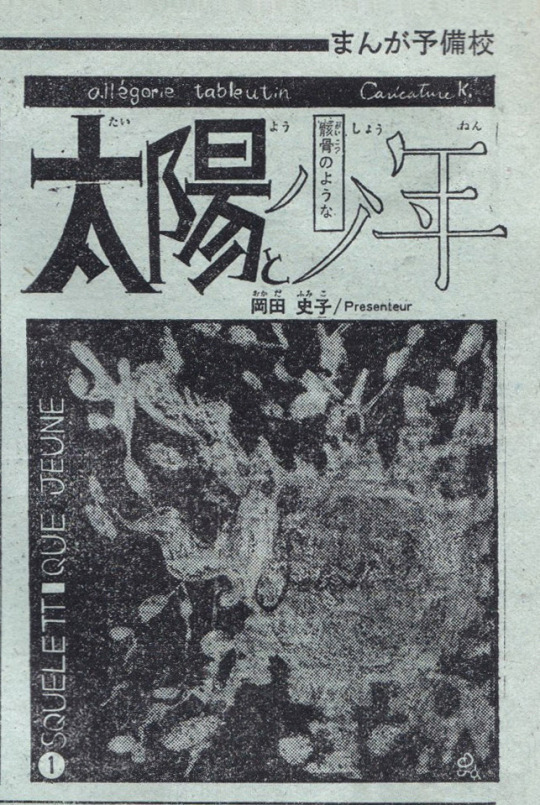
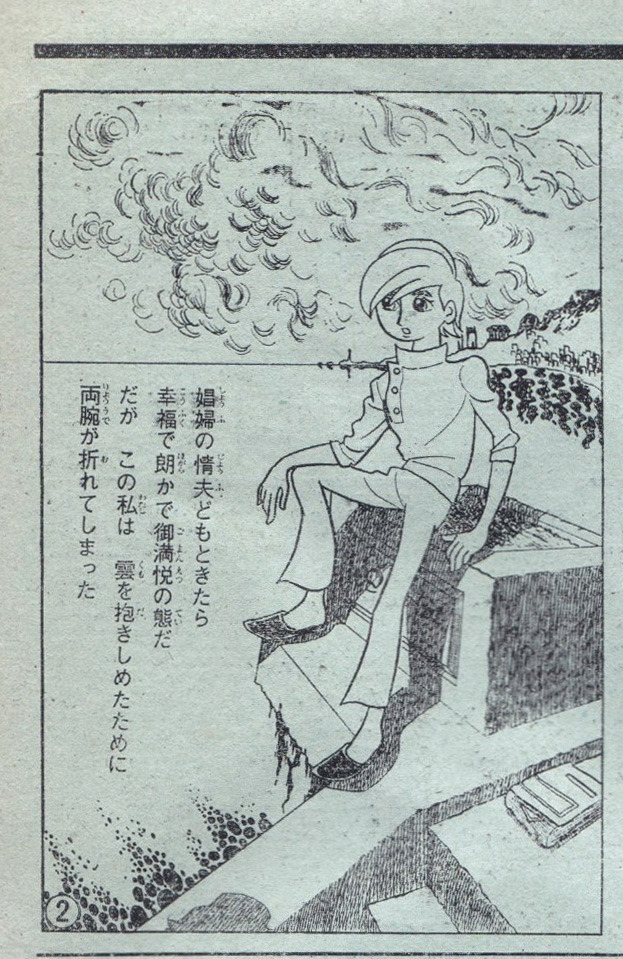
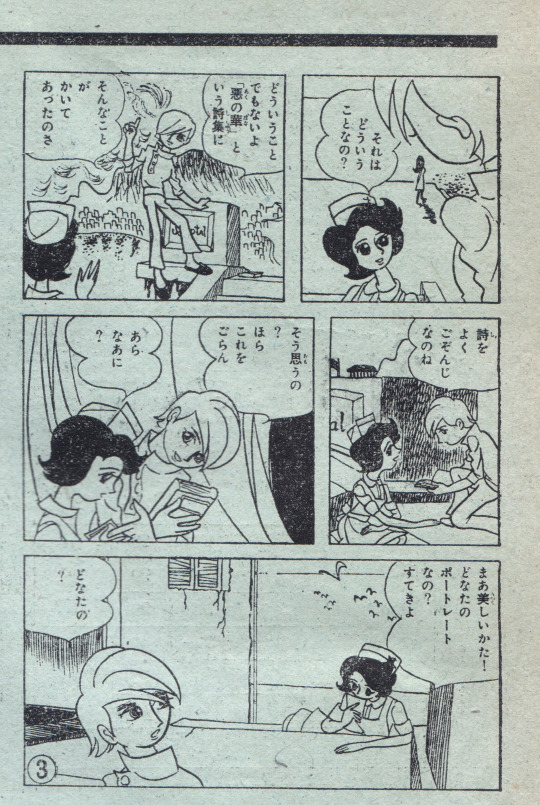
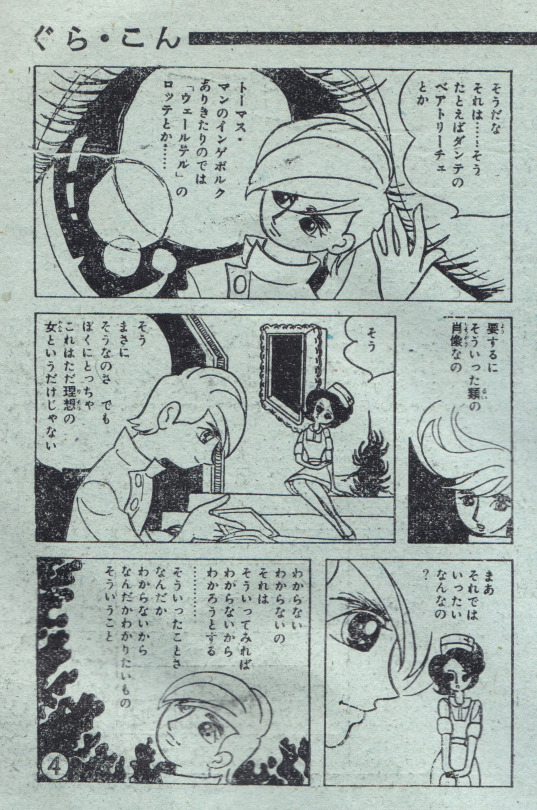
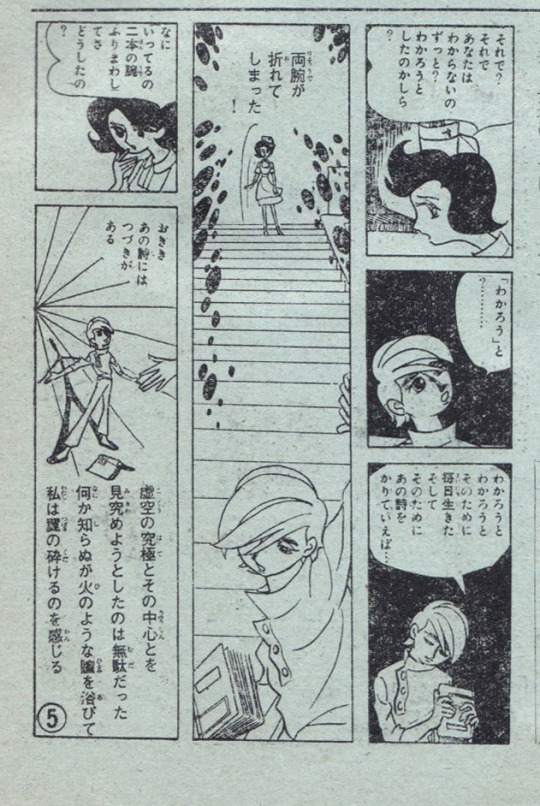
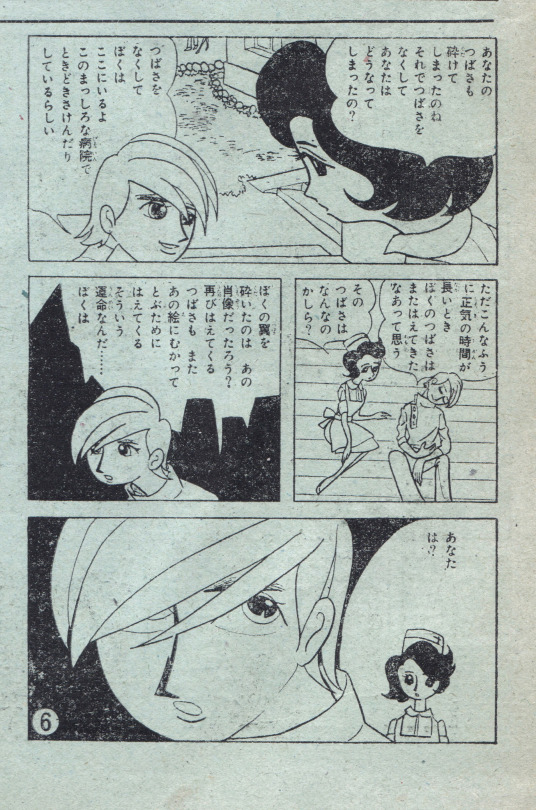
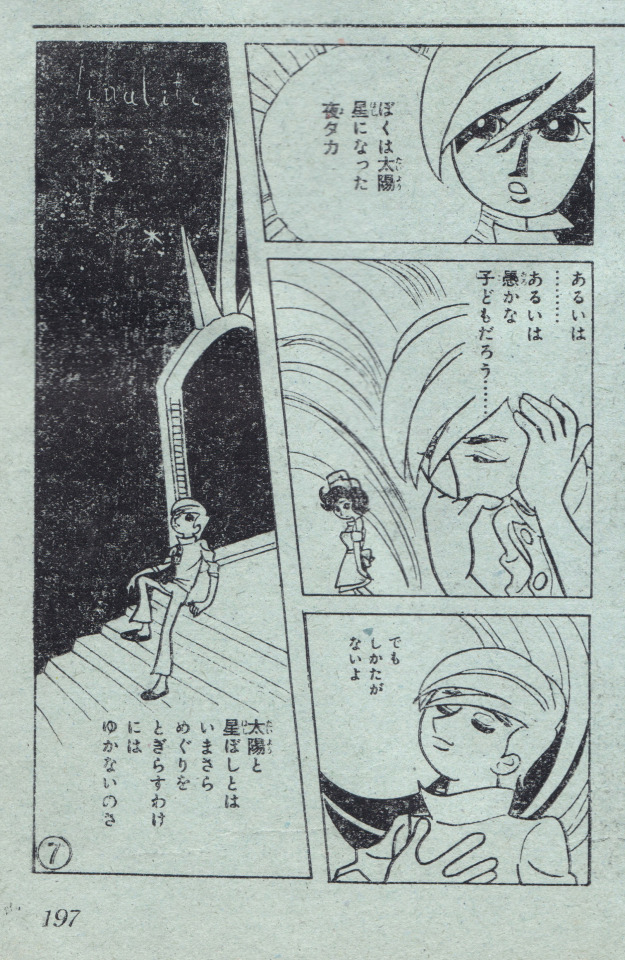

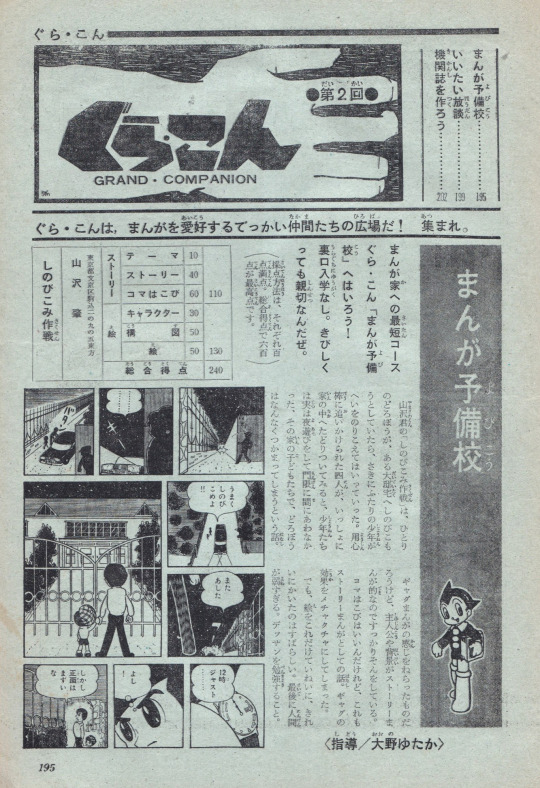
岡田史子 fumiko OKADA 太陽と骸骨のような少年
COM(虫プロ商事刊)1967年2月号 第2回ぐら・こん まんが予備校 #岡田史子 #fumiko OKADA #COM
23 notes
·
View notes
Photo

第105話 「力が欲しい! まこちゃんの迷い道」
#el.nakamori#El Nakamori#Sailor Moon#Sailor Moon S#Usagi Tsukino#Tsukino Usagi#Minako Aino#Aino Minako#第105話 「力が欲しい! まこちゃんの迷い道」#力が欲しい! まこちゃんの迷い道#Bishojo Senshi Sailor Moon S#Bishojo Senshi Sailor Moon#美少女戦士セーラームーンS#セーラームーン#セーラームーンS#美少女戦士セーラームーン#愛野美奈子#月野うさぎ
67 notes
·
View notes
Text

#どうせ泣くなら恋がいい#Douse Naku nara Koi ga Ii#橘帆高#橘#帆高#hodaka#早坂湊#早坂#hayasaka#湊#minato#hayasaka minato#shoujo#shojo#日下あき#kusaka aki#ア二メ#anime#lovers#love#romance#まんが#少女#manga#comic#少女漫画
4 notes
·
View notes
Photo
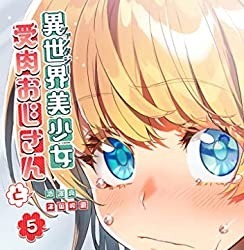
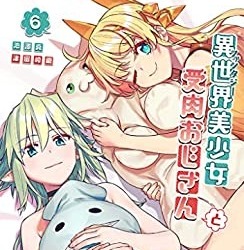
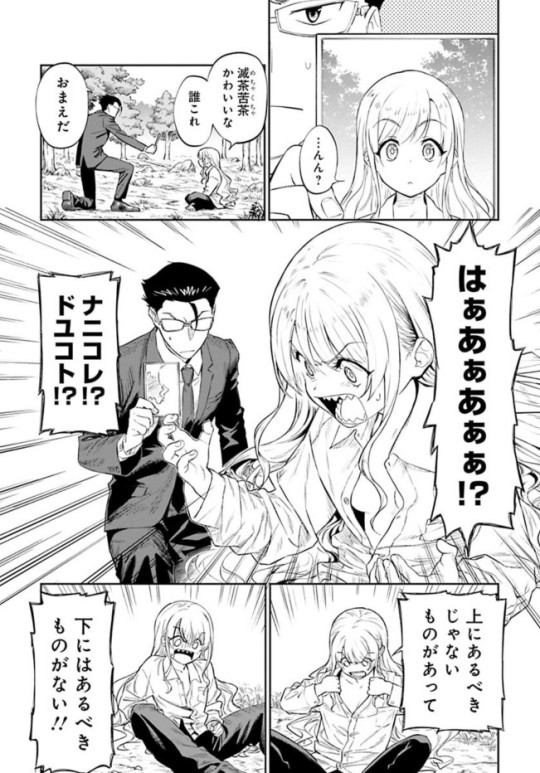
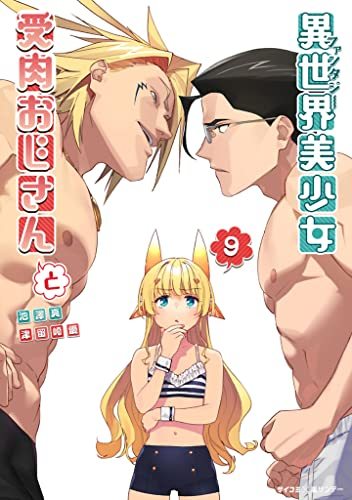
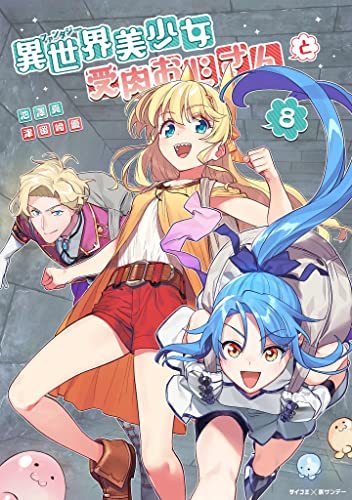
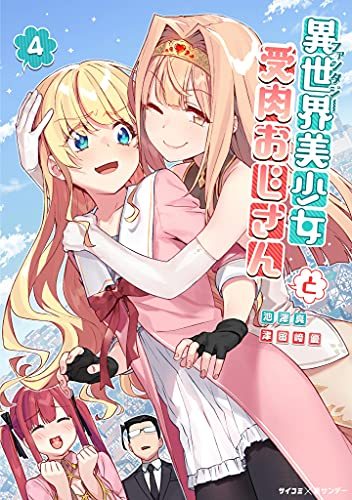
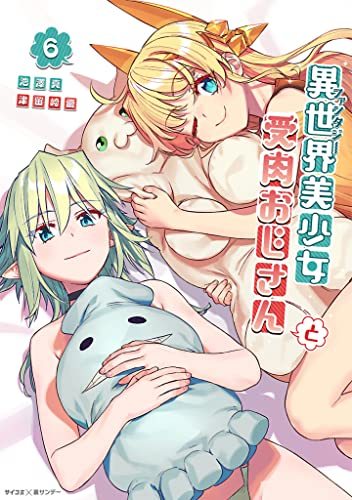
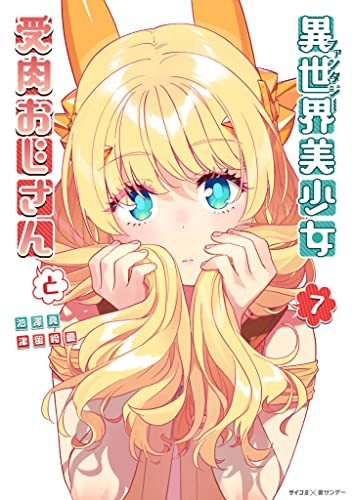
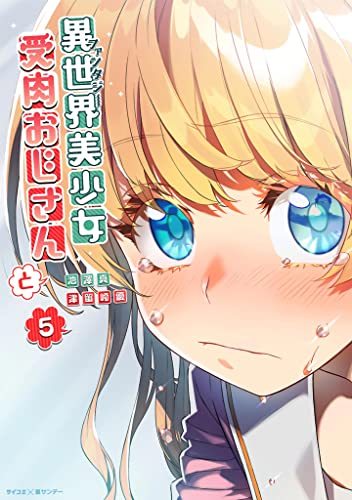
(異世界美少女受肉おじさんと - kinlog -電子書籍漫画道-から)
7 notes
·
View notes
Text
A very retro design of the 1974 Japanese TV Series - Heidi, Girl of the Alps.
#Heidi#Girl of the Alps#Calpis Manga Theater#World Masterpiece Theater#Japanese TV Series#80s anime#70s anime#vintage anime#childhood nostalgia#Nostalgic anime#anime of the old times#retro anime#アルプスの少女ハイジ#カルピスまんが劇場#世界名作劇場#阿尔卑斯山的少女#飘零燕#小天使#阿尔卑斯的少女海蒂#少女海蒂
0 notes
Text



※満席となりました。ありがとうございました!
トークイベント『翻訳者・永田千奈さんに聞く! 「海に住む少女」の魅力』開催のお知らせです☆
本おやではフランスの詩人・シュペルヴィエルの短篇集『海に住む少女』の翻訳などでお馴染み! 翻訳者の永田千奈さんが、来たる2024年8月10日(土)に本おや店内にてトークをしてくださることになりました!
今年『個人書店が選ぶ、いま読んでほしい海の本』を刊行された「みなとラボ」さんの全国キャラバン「本屋は海の入口!」第三弾(7月27日〜8月27日@本おや店内)に合わせて行うイベントです。
この本のなかで私が「自分にとってのお気に入りの『海』の本」で選んだのが『海に住む少女』でもあり、そして当店で10年以上売り続けてもいます☆
その翻訳を手掛けていらっしゃる永田千奈さんにさまざまお話いただける、素敵にすぎるイベントです!
※本企画は��本財団の助成のもとみなとラボが実施しております。
【イベント詳細】
▪️日時:2024年8月10日(土)13:00〜14:30
▪️場所:本は人生のおやつです!!店内
▪️参加費:1000円
▪️参加人数:15名
▪️トークテーマ:「海に住む少女」について、作者のシュペルヴィエルについて、またどう訳されたかや、シュペルヴィエルが考える「海」とはどのようなものか……などなど様々に質問させていただきます! 質問は、みなとラボスタッフの小倉さんと私がさせていただきますが、お客様からの質疑応答のお時間もございますので、色々聞いてみたーい!な皆様、この機会によろしければーっ☆★☆
▪️お申し込み
当店お問い合わせフォーム
http://form1.fc2.com/form/?id=637738
より
・氏名
・当日連絡のつく電話番号
・参加人数
を明記の上、件名「8月10日のトークイベント参加希望!」にてお申し込みください。
(なお、お車でお越しの場合、この日は駐車場が別の場所となりますので、別途お知らせさせていただきます)
すでに面白くなる予感しかありませんが、よいイベントになりますよう張り切ってまいりますので、よろしければぜひぜひご参加くださいませ☆★☆
1 note
·
View note
Text
無料で読める漫画:アマゾン
アマゾンジャパンのサイトで、無料で読める漫画がたくさんあります!Kindleショップに行ったら、選択が見られます。 Pinterest Facebook X kindleショップのジャンル選択無料の程度あるシリーズのすべてが無料で読めますか?なんの漫画が無料で読めますか?ループ7回目の悪役令嬢は、元敵国で自由気ままな花嫁生活を満喫する人喰い少年と触れられない少女 もし見たければ、このリンクにクリックしてください!アマゾンジャパンのkindleショップに行って、項目の「無料な漫画」のボタンにクリックしたら、人気なジャンルが見られます。それか、項目に「無料な漫画」の隣に「Fliptoons」という選択もあります。これも漫画ですが、24時間以内1話しか読めません。Fliptoonsをもっと知りたければ、ここで見られます。 kindleショップのジャンル選択 アマゾンジャパンで、ジ…

View On WordPress
#まんが#アマゾン#アマゾンの漫画#ファンタジー#ホラー#マンガ#無料な漫画#無料の漫画#japanese manga#kindle#kindleアプリ#少女#少年#日本#日本語#日本語の漫画#漫画#漫画を無料で読む読む#漫画紹介
0 notes
Text
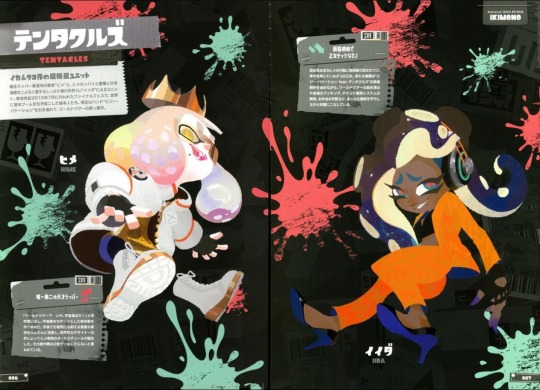
Translation for the Off the Hook page of Splatoon 3 Ikasu Art Book
[Squid & Octo Supernova Unit]
A unit consisting of the wicked-tongue rapper and champion of chaos Pearl, and the ditzy and dependable Marina, who loves nothing else in the world more than Pearl, heavy machinery and shoujo manga. They are the ones responsible for the Final Fest held in July of 2019 Mollusc Era that caused the "chaos boom" sweeping over the world. Currently, they are in the midst of a world tour accompanied by the band Damp Socks.
[The One and Only Genius Rapper]
“A world tour? No way, we’re taking this thing to outer SPACE!” is what Pearl suddenly declared before throwing herself into creating a new outfit themed after an space suit. The end result was a haute couture garment made by the hands of a world-renowned designer, and threaded with an abundance of valuable materials that can withstand the vacuum of space. The manufacturing costs ended up totaling to 200 million geso, leading some to call it “a huge waste of money.”
[Sharp-Minded and Girlish DJ]
An Octoling maiden who finds happiness in constantly being swept up by the behavior of the ever free-spirited Pearl. All the while progressing with musical composition for the new frontier that is Damp Socks feat. Off the Hook, she is capable of also managing other affairs in tandem with complete perfection. These include coordinating the overall direction of the world tour, booking the venues, development of ticket sales systems, and lunch box preparation.
JP under the cut:
イカ&タコの超新星ユニット
毒舌ラッパー兼混沌の覇者"ヒメ"と、ヒメセンパイと重機と少女漫画をこよなく愛するしっかり者の天然DJ"イイダ"によるユニット。 軟体世紀2019年7月に行われたファイナルフェスで、世界に混沌ブームを引き起こした張本人たち。 現在はバンド”ビジー・バケーション"を引き連れて、ワールドツアーの真っ最中。
唯一無二の天才ラッパー
「ワールドツアー? いや、宇宙進出だ!」と突然言い出し、宇宙服をモチーフとした新衣装を作り始めた。宇宙での使用にも耐える貴重な材料をふんだんに活用し、世界的なデザイナーの手によってヒメ専用のオートクチュールが誕生した。その製作費は2億ゲソはくだらないと言われている。
頭脳明晰で乙女チックなDJ
自由気ままなヒメの行動に毎回振り回されつつ、幸せを感じているタコの乙女。新たな展開の”ビジー・バケーションfeat.テンタクルズ”の楽曲制作を進めながら、ワールドツアーの総合演出や会場のブッキング、チッケト販売システムの開発、お弁当の手配など、あらゆる業務を平行しながら完璧にこなしている。
554 notes
·
View notes
Text
ways to say "only", "just" in Japanese
When I started learning Japanese, I quickly discovered that “only” translates to だけ (dake). Soon after, I learned about しか (shika) and then ばかり (bakari). This led me to wonder how many ways there are to express the idea of "only" or "just" in the Japanese language. I began exploring the fascinating world of adverbs that convey limitation or exclusivity, each with its own specific nuance.
Here are some of the terms I’ve discovered (which I may continue to expand upon):
だけ (dake): Strongly emphasizes exclusivity, meaning that nothing else is included or considered. Example: 水だけください。 (Please give me only water.)
しか (shika) (used with a negative verb): Often conveys a sense of disappointment or limitation, implying that there’s nothing but the mentioned item, often with a sense of restriction. Example: 私は日本語しか話せません。 (I can only speak Japanese.)
ばかり (bakari): Suggests the dominance or prevalence of something, often with a sense of excess or monotony and a negative nuance. It does not imply strict exclusivity. Example: お菓子ばかり食べている。 (I’m only eating snacks.)
ばかし (bakashi): A casual variant of ばかり, used mostly in spoken language. It conveys a similar meaning but carries a more informal tone. Example: 遊んでばっかしいる。 (He’s only playing.)
のみ (nomi): Used in formal or written contexts, conveying exclusivity. It can sound elegant and refined. Example: 本日のみ有効です。 (Valid only today.)
ばかりか (bakari ka): This expression expands the meaning by introducing additional information, indicating more than just "only." Example: 彼は優しいばかりか、面白いです。 (He is not only kind but also funny.)
だけしか (dake shika) (used with a negative verb): This term combines だけ and しか, emphasizing strong exclusivity when used with negative constructions. Example: これだけしかない。 (There is only this.)
こそ (koso): Indicates that the highlighted item is particularly special or the best choice, often implying that nothing else can compare. Example: 今日こそ勉強する。 (Today, of all days, I will study.)
たった (tatta): Implies that an amount is minimal and often inadequate, highlighting a sense of limitation. Example: たった一人で旅行した。 (I traveled with just one person.)
わずか (wazuka): Emphasizes a minimal quantity or degree, often with a sense of surprise. Example: わずか10分で終わった。 (It only took 10 minutes.)
ほんの (honno): Indicates a small or trivial amount, often used to downplay something. Example: ほんの少しだけ食べた。 (I ate just a little bit.)
に限る (ni kagiru): This expression is used to convey that something is the best or only suitable choice for a situation. Example: 夏はアイスクリームに限る。 (Ice cream is the best for summer.)
だけでなく (dake de naku): Similar to ばかりか , this phrase is used to express that there’s more than just one thing happening. Example: 彼女は賢いだけでなく、優しいです。 (She is not only smart but also kind.)
単に (tan ni): Indicates simplicity; often used to clarify or explain something in a straightforward manner. Example: 単に冗談だよ。 (It’s just a joke.)
あくまで (akumade): Suggests that something is true only to a certain extent or in a specific context. Example: あくまで私の意見です。 (This is just my opinion.)
たかが (takaga): Often carries a dismissive connotation, suggesting that something is not very important. Example: たかが試験一回でどうなるものか。 (It’s just one exam; it won’t change much.)
I love discovering all these subtle differences and nuances, even if it can be frustrating at times. If you know of any more, please share!
916 notes
·
View notes
Photo

第32話 「海野の決心!なるちゃんは僕が守る」
#el.nakamori#El Nakamori#第32話 「海野の決心!なるちゃんは僕が守る」#海野の決心!なるちゃんは僕が守る#Sailor Moon#Ami Mizuno#Usagi Tsukino#Rei Hino#Makoto Kino#Kino Makoto#Hino Rei#Mizuno Ami#Tsukino Usagi#Bishojo Senshi Sailor Moon#美少女戦士セーラームーン#セーラームーン#火野レイ#水野亜美#木野まこと#月野うさぎ
132 notes
·
View notes
Text

spoiled Minato-kun
#どうせ泣くなら恋がいい#Douse Naku nara Koi ga Ii#橘帆高#橘#帆高#hodaka#早坂湊#早坂#hayasaka#湊#minato#hayasaka minato#shoujo#shojo#日下あき#kusaka aki#ア二メ#anime#lovers#love#romance#まんが#少女#manga#comic#少女漫画
3 notes
·
View notes
Text
1週間ほど前から、母は歩けなくなった。立つことも座位もできなくなった。そうすると困るのは排泄。オムツはしてるものの定期的に交換しなくてはいけない。
ただ、肺がんはもはや母の背中の輪郭を追い越すほどに大きくなり左横向きでないと痛みが激しいようで体位変換もままならない。
母の友人が二人来てなんとか排泄処理をしてくれたが、壮絶でこんな大変なことを無償で他人にさせて良いとは思えなかった。
母は10年会っていない兄と孫たちに会うまではと在宅を死守しようとしていたがここらが潮時だと判断。
数日前から顔に歪みが出てきたこともあり、救急車を呼んだ。通常の通院もできないのだから仕方がなかった。隊員の方々に運ばれるが、やはり痛みが激しく、素人ではどうやったって動かすことはできなかったなと判断は間違ってないと罪悪感を飲み込む。
痛みもあるだろうが、母の態度は誰に対しても刺々しい。ドラマや映画で見るような最後は安らかに菩薩のように。とは全然いかない。人相も悪い。
朝の10-17時頃まで検査からの入院手続きに時間がかかった。山程の書類にサインし、生活用品を買った。
主治医からは痛みが激しくじっとしてられないのでMRIは撮れなかったと言われた。おそらくは脳梗塞があるが、CTではわからないそうだ。
緩和ケアに入院。もう治療のしようもない。
どちらかといえばホッとした気持ちが大きい。人に迷惑をかけて、親族にも負担をかけている。まだ、母がも模範的な患者ならいいが、ろくに運動せず、ろくな食事をせず、薬も飲んだり飲まなかったりで、「生きたい」という気持ちと態度が合っていない。それに支える��も腹が立つ。
最後まで言ってることとやってることが違うを地で行く人だ。誰かがなんとかしてくれるはこと病気には通用しない。
身の回りの整理をして、「またくるね」と話した際に「もう、いよいよとなったら大量の痛み止めをもらってうちに帰る」とゆがんだ顔で言った母は意地の悪い魔女のようだった。
立てもしない、自分で排泄もできない人が何を言っているのか。まだ、人に迷惑をかけてまで我を通そうとするのかと自分の母ではあるが、心底がっかりした。
「母にはここで死んでもらおう」と心に誓った。その罪や罰があるならば引き受ける。これ以上人に迷惑をかけるのは違う。そう思った。
もちろん母には何も言わない。死という大きな言い訳で押し返される。弱者は強い。
帰り道歩きながら、酷く情けない気分になった。
人生の引き際がこんなにも醜く、それが自分の母なのだ。と同時に癌という病気は、少なくとも母の肺癌は治療にしがみついて、できることがなくなったときにはもう体の自由が利かない。
余命何ヶ月になり、車椅子でもいいからゆったりとした余生を送る。そんな甘い生活は、治るかもしれないという希望を早めに捨てないと手に入らないものなのだ。母は醜く執着し過ぎた。両方は手に入らない。
選ばなくてはいけないタイミングは実はずっと前でもうとっくに逃している。
「こんなんわからんよなぁ」とひとり呟く。
ここ数日の夕焼け空はその派手な色と裏腹に大気を温めてくれない。白い息が舞っていった。
新百合ヶ丘の駅前はクリスマスマーケットの準備に余念がない。どこか浮かれた人の顔にモザイクがかかる。頭の処理能力が落ちてる。早く帰ろう。
風呂に入り、少し寝て
自分のときは間違えないように。未来のために胸に刻むのだ。
336 notes
·
View notes
Text
「清潔感」は「いい匂いがしそう」かどうかで決まる。キモいオタクがお風呂に入っても「いい匂いがしそう」とはならない。でも美少女は3日お風呂に入らなくてもいい匂いがしそう。事実は関係ない。清潔感というのは「いい匂いがしそう」かどうか。
あくおん / X
296 notes
·
View notes
Quote
あのマスクが浮き彫りにしたのは「自分には必要無かったから全ての人にも必要が無かった」と考えるような、「福祉を考える事に全く向いていない人々」だったと思います。 「自分に必要無いから無駄」って考え方が浸透したら「バリアフリー社会」なんて崩壊しますよ。点字ブロックなどの視覚障害者向けの設備、いったい何割の人間が恩恵を受けるか考えた事がありますか? 自分はマスクの配布が決まった時に、配布を歓迎する介護施設の人々や障害者の人達の書き込みを見て「これで良かったのだ」と思いました。 「自分に必要無いから無駄」って考える人は「自分の住んでる場所には間に合わなかったから、全国的に間に合わなかった」って考え方をする。あれは「感染率が高い自治体優先」で配られたので配られた時期にも相当にバラ付きがあります。自分が住んでる世田ヶ谷は感染率が高かったので、まだドラッグストアの棚が空の頃に届きました。何でも自分基準で考えたらダメです。 何はともあれ、安倍晋三はマスクを手に入れられない少数を見棄てなかったし、多くの「リベラル」はそのための政策を「無駄」と決めつけた事、自分は一生忘れません。
(1) XユーザーのKatana Edge@中2超ポリコレリベサヨうんこ美少女💉💉💉💉 (cv: 広川太一郎)さん: 「あのマスクが浮き彫りにしたのは「自分には必要無かったから全ての人にも必要が無かった」と考えるような、「福祉を考える事に全く向いていない人々」だったと思います。」 / X
298 notes
·
View notes
Text






傳谷 英里香は、日本の女優。千葉県出身。KON-RUSH所属。女性アイドルグループ「ベイビーレイズJAPAN」のリーダーであった。 ウィキペディア
生まれ: 1995年11月2日 (年齢 29歳), 千葉県
映画: なれたら
身長: 158 cm
事務所: レプロエンタテインメント(-2022年7月); KON-RUSH(2022年11月-)
血液型: B
日本人の父とフィリピン人の母との間に生まれた。洗礼名はアンジェラ(Angela:イタリア語で天使の意味)。日本語の語順ではアンジェラ傳谷英里香となる。
スポーツ全般が得意。公式プロフィール記載の特技であるバスケットボールは小中の7年間部活に入部しており、中学生時代には副キャプ��ンを務めていた。同じ時期、水泳部、陸上部も掛け持ちしていた。スキューバダイビングは2017年夏に日帰りで資格を取得。
運動能力反射神経ともにメンバーの中ではずば抜けており、ベイビーレイズのメンバーと運動で争う企画では独壇場であった。
ピアノも幼少時より習っており、「第17回Japan Expo」のため渡仏した折には撮影で訪れたモンマルトルの丘にて両親の思い出の曲であるサザンオールスターズの「TSUNAMI」を演奏し、居合わせた現地の人や観光客の注目を集めた。
ベイビーレイズJAPAN結成以前はモデルまたはソロアーティスト志望であり、黒木メイサや安室奈美恵を目標としていた。このため結成当初はアイドル活動に全く乗り気では無く、自身のTwitterやブログなどで「元々アイドルというものが苦手でやりたくなかった。」とも語っていた。しかし、ベイビーレイズJAPANのメンバーとして活動していくにつれて「今は(アイドルが)好きです。ちゃんと言えます。」「前の自分に会ったら引っぱたきたいくらい全然違う世界だった。」と思うようになり、アイドルに対する考え方も変わっていったという。
ベイビーレイズ時代は「やるならとことん」を座右の銘としてことあるごとに明言しており、キャッチフレーズにもなり実際の行動規範ともしていた。
10代の間に体験しておきたいと、20歳の誕生日前に群馬県のみなかみバンジーでバンジージャンプを体験した。
ベイビーレイズ(JAPAN)時代はハーフと言うこともあり漢字が苦手キャラであったが、読書家であり実際はそれほど苦手ではない。自身の苗字の「傳」の字もバランスよく書きこなし、客観的には達筆の部類に入る。
『世界ふしぎ発見!』(TBS)の解答者として初めて出演した回を含め合計3度{2019年5月時点}もの全問正解のパーフェクト賞を獲得し、推理力・考察力に秀でた才女ぶりも披露している。
ロック音楽が好き。2017年1月に名古屋で共演してからSUPER BEAVERの大ファンとなり、1人でワンマンライブに参戦するほどである。女性シンガーでは阿部真央やあいみょんが好き で、ファンクラブイベントで彼女らの曲を歌唱披露したこともある。
読書好きであり、仕事の合間を縫って様々な本を読んでいる。哲���書や自己啓発本も好んで読む。小説も幅広く読むが、川村元気や住野よるの作品に造詣が深い。漫画はほとんど読まないが、ファッション関係の仕事に関心が強いこともあり、『ランウェイで笑って』は好きな作品であると表明している。
映画も非常に好きで、オフや仕事の空き時間を縫ってよく鑑賞する。幅広いジャンルを鑑賞するが、ドキュメンタリー物が好み。ファンイベントでは、おススメの映画として『グッド・ウィル・ハンティング/旅立ち』、『湯を沸かすほどの熱い愛』、『ワンダー 君は太陽』、『ルーム』、『君が生きた証』を挙げ、作品に対する熱い想いを大いに語った。
178 notes
·
View notes